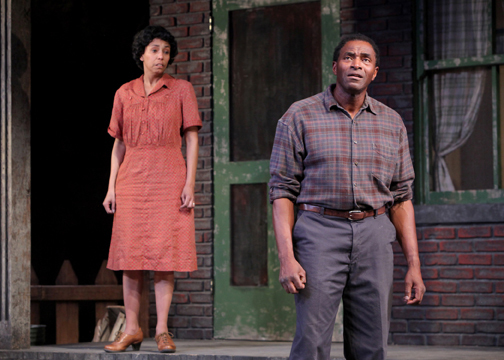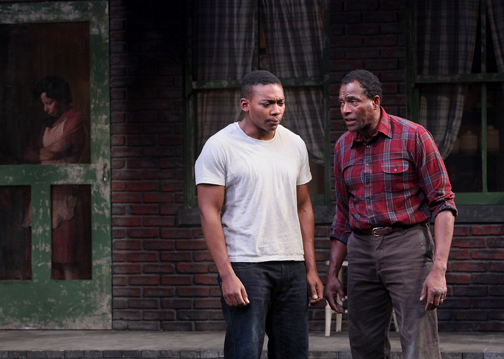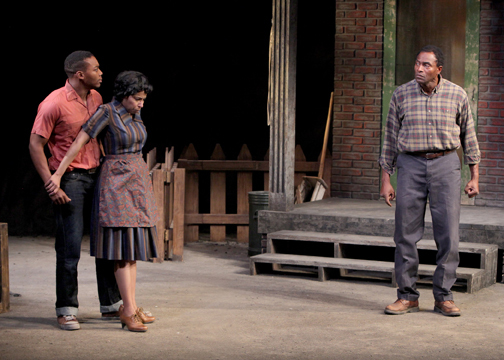As politicians and pundits ponder America's diminishing middle class, more than one baby boomer has noticed a peculiar phenomenon afflicting younger generations. While the parents of baby boomers may have worked hard to ensure that their children enjoyed more opportunities than their parents had been able to provide, a surplus of riches has resulted in a curious form of paralysis.
Many baby boomers grew up in a time when their choices were pretty obvious. Sure, there were chores to be done and goals to be met for their children (piano lessons, ballet classes, summer camp, etc.) But not a lot of money could be squandered on meaningless frivolity.
By contrast, today's young consumers have so many options at their fingertips that much more time is spent in pursuit of instant gratification than being productive. Easily distracted by mobile devices and a celebrity-driven media, many young adults have money to spare.
Those enjoying newfound wealth through high-paying jobs or their professional success don't feel the same kind of urgency their parents did with regard to managing their time or dealing with financial matters. Some have developed into entrepreneurial toxic cartoons.
Despite their constant braying about the need to have marriage defined as being the relationship between one man and one woman, the conservatives who espouse traditional family values have been forced to acknowledge that new kinds of families exist in America.
- Many women have embraced artificial insemination in order to create a child of their own with the help of a sperm donor.
- Others have chosen to remain single, occasionally having more than one baby daddy in their lives.
- In some families, the father figure may be physically or emotionally unavailable due to military service, workaholism, substance abuse, incarceration, or other factors.
- Young widows and widowers frequently face the challenge of raising children on their own.
- Following the United States Supreme Court's decision in United States vs. Windsor, an increasing number of state supreme courts have found state bans on same-sex marriage inspired by 1996's Defense of Marriage Act to be unconstitutional, thus paving the way for marriage equality. A key factor in the legal fights for marriage equality has been securing equal protection for the children of same-sex couples (whether those children be natural born, adopted, the product of a previous marriage, or created with the help of a sexual surrogate).
For many families, the unsung hero in a child's life may be a teacher, coach, or mentor who provides the kind of role model or trusted friend that may not be available at home. The following YouthFX short, Inside the Ring (which was screened at the 2014 San Francisco International Film Festival), was filmed at a boxing club in Albany, New York where Jerrick Jones has been an inspiration and mentor to generations of aspiring athletes.
* * * * * * * * * *
Alas, there are also men who, though they remain at home and function as breadwinners, are not the most loving people in the world. A prime example of this would be Troy Maxson, the protagonist in August Wilson's poignant Pulitzer Prize-winning play, Fences (which had its world premiere at the Eugene O'Neill Theater Center in Waterford, Connecticut in 1983).
I first saw Wilson's play during its 1987 pre-Broadway tryout at the Curran Theatre in San Francisco with James Earl Jones in the lead role. At the time, I found it difficult to appreciate Wilson's play. Numerous factors might have affected my experience that evening.
- My first exposure to James Earl Jones had been his bravura performance in The Great White Hope on Broadway in 1969. While Jack Johnson was a powerfully heroic figure, Troy Maxson was not what anyone would call a sympathetic character. A garbage collector in Pittsburgh, Pennsylvania who, after finally being promoted to a truck driving position, saw no reason to get a driver's license, he was an old-fashioned macho bully. Troy cheated on his wife and didn't particularly like his children. But, hey, it was the 1950s.
- By 1987, many San Franciscans were living in a constant state of mourning due to the AIDS crisis. People's politically correct nerves were frayed, to say the least. Listening to African American men calling each other "nigger" onstage may have been one more depressing use of language that I could have lived without that evening.
But times change. Audiences change. And as new actors step into the shoes of the characters a playwright has created, their personalities, physiques and professional training reshape the dramatic experience. The following clip allows viewers to compare two markedly different portrayals of Troy Maxson:
- In the first clip, shown during the 1988 Tony Awards show, Troy (James Earl Jones) confronts his son, Cory (played by Courtney B. Vance), under the direction of Lloyd Richards.
- In the second clip, taken from the 2010 Broadway revival that was directed by Kenny Leon, Denzel Washington seems much less brutal in his confrontation with Chris Chalk.
Fences was the sixth installment written in Wilson's 100-year "Pittsburgh cycle" or "Century cycle" of plays set in Pittsburgh's Hill District (each play takes place during a different decade). Wilson received Pulitzer Prizes for Drama for Fences (1987) and The Piano Lesson (1990). On October 16, 2005, the Virginia Theatre was renamed the August Wilson Theatre in honor of the playwright who had died two weeks earlier at the age of 60.
So far, I've seen productions of Fences, Ma Rainey's Black Bottom, Radio Golf, Joe Turner's Come and Gone and Seven Guitars. The Marin Theatre Company, which has set a goal of producing all ten plays in Wilson's Pittsburgh cycle, recently offered an exquisitely staged new production of Fences.
Margo Hall and Carl Lumbly in Fences (Photo by: Ed Smith)
Directed by Derrick Sanders on a simple unit set designed by J.B. Wilson, MTC's production was one of those rare achievements in ensemble acting where audiences leave the theatre gobsmacked by the high quality of what they have just experienced. One of the factors which made MTC's production so interesting was that every member of its cast had strong ties to the Bay area.
- Steven Anthony Jones, who portrayed Troy's co-worker, Jim Bono, was a core company member of San Francisco's American Conservatory Theater for more than two decades. Currently serving as artistic director of the Lorraine Hansberry Theatre, his Bono was an affable, middle-aged man who tried to warn his stubborn friend about the dangers of seeing other women. A solid family friend for many years, the last thing Bono wants is to see Rose hurt by her husband's infidelity.
- Adrian Roberts (Gabriel) is a familiar face on Bay area stages. As Troy's younger brother (who sustained a head injury during the Korean War which has left him mentally impaired), his behavior was often childlike, filled with an odd mixture of paranoia and wonder.
- Tyee Tilghman (Lyons), who is frequently seen onstage at CalShakes, portrayed Troy's son from a previous marriage as an aspiring musician who is much more interested in following his passion than paying his bills. As the son who shows up every Friday hoping to borrow money from his father, Lyons is a surprisingly sympathetic character whose ambition keeps him going.
- Eddie Ray Jackson (a San Francisco native) portrayed Cory, the teenaged son of Troy and Rose. A high school student who is being courted by a college recruiter, Cory is frustrated by his father's refusal to sign the papers that would allow him to apply for a football scholarship.
Eddie Ray Jackson and Carl Lumbly in Fences (Photo by: Ed Smith)
The evening's two powerhouse performances come from actors who never fail to impress Bay area audiences with their depth and versatility.
- Carl Lumbly (Troy Maxson) is a powerful, athletic actor who has no trouble commanding a stage. As Troy (a talented former baseball player who has spent several years in prison) he embodied the kind of middle-aged man who is determined to be respected as the alpha male in his family. Sexually selfish and stubborn as a mule, he is keen on lecturing his sons about responsibility. While Troy remains financially responsible to his family, he's standing on increasingly shaky moral ground.
- Margo Hall (Rose) is one of the Bay area's dramatic wonders. An actress, singer and playwright with an uncanny ability to create complex characterizations, she has a great talent for gaining an audience's sympathy by underplaying a role. An artist who often paints sorrow with knowing silences, Hall communicated the utter sadness and despair of a woman who had tried to remain loyal through 18 difficult years of marriage only to be hit with the ugliness of her husband's betrayal when Troy informed her that he's about to become a father (with another woman). Where other actresses might have used Rose's big scene in Act II to show their vocal fire, Hall's eyes and body language revealed a woman who, fearing her husband's anger, had always forced herself to remain in control of her feelings.
Eddie Ray Jackson, Margo Hall and Carl Lumbly in Fences
(Photo by: Ed Smith)
MTC's production of Wilson's play packed a solid set of dramatic punches. Here's the trailer:
* * * * * * * * * *
While doing some research on YouTube, I came across a wonderful clip of August Wilson discussing the state of theatre in America with Charlie Rose.
Although Wilson is correct to complain about the lack of African American professionals in the higher echelons of many American theatre companies, the Black Theatre Network is "dedicated to the exploration and preservation of the theatrical visions of the African diaspora." Thanks to the Bay area's diversity and thriving theatre community, local audiences have the opportunity to attend performances and readings at three African American theatre companies.
- The African American Shakespeare Company was launched in 1994 by Sherri Young and is now under the artistic leadership of L. Peter Callender.
- Founded in 1981 by Quentin Easter and Stanley E. Williams, the Lorraine Hansberry Theatre was forced to downsize for economic reasons, but still offers readings and educational outreach programs.
- Now celebrating its 49th season, the Black Repertory Group in Berkeley "provides opportunities to develop individual and young artists, and for our youth to discover a rich, black cultural heritage."
On the company's website, its Executive/Artistic Director, Dr. Mona Vaughn Scott, notes that:
"If my Mom, Nora Vaughn, were alive today, she'd tell you that the Black Repertory Group Theater is a revolutionary theater; that both of my parents initially started using theater as a means to impart knowledge about the rich history of Black Americans way back in Vicksburg, Mississippi where Mom and Dad were also high school teachers. After three aborted attacks from the Ku Klux Klan, (Mom told me that one bullet just missed my head in my baby bed), Mom finally convinced my Dad to leave so he could scout out and find a new home for us in California. Dad reluctantly left us behind in Mississippi. Mom continued to boldly use her 'drama to inform and educate,' joining Dad in California almost a year later when I was three years old.
Running my late parents' theater and cultural center is the most revolutionary thing I've ever done. My family has always been involved in civil rights and revolutionary acts from the 'Gate' because Mom and Dad taught us to be revolutionaries early on. My mother was fierce. The power brokers at that time gave Mom so much resistance to building her new theater in the early 1980s that, after three dates that were not met and promises not kept, Mom picketed City Hall (right outside the Mayor's office). We display her picket sign that states: HERE I SIT, TILL BLACK REP STANDS. Needless to say, Mom received the 'Approval' for construction to begin the very next day."
To read more of George Heymont go to My Cultural Landscape



